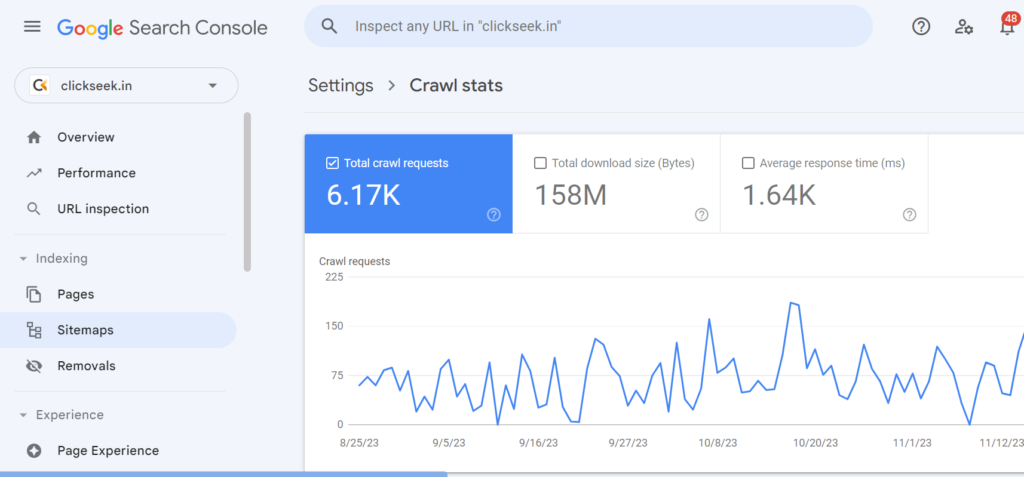
In the dynamic world of search engine optimization (SEO), crawl budget plays a pivotal role in determining the visibility and SEO ranking of your website. It refers to the limited number of pages that search engines can crawl and index within a given period. Effectively managing your crawl budget ensures that search engines prioritize and discover the most valuable and relevant pages on your site, ultimately enhancing your SEO performance.
Understanding Crawl Budget: The Essence of Efficient SEO
As search engines navigate the vast expanse of the internet, they allocate resources based on a site’s authority, size, and frequency of updates. This allocation translates into the crawl budget, which represents the capacity of search engines to process and analyze your website’s content.
What is Crawl Budget?
Crawl budget is essentially the capacity of search engines to process and analyze the content on your website. It is determined by various factors, including the size and complexity of your site, the frequency of updates, and the overall authority of your domain.
Why Crawl Budget Optimization Matters

The importance of optimizing the crawl budget lies in its impact on the visibility and effectiveness of your SEO efforts:
Improved Search Engine Visibility: By ensuring that search engines prioritize your most important pages, you increase the likelihood of those pages appearing in search results, boosting your website’s visibility.
Enhanced SEO Performance: A well-optimized crawl budget prevents search engines from wasting time and resources on low-value or irrelevant pages. This allows them to focus on crawling and indexing the most valuable content, leading to improved overall SEO performance.
Efficient Resource Utilization: Optimizing the crawl budget ensures that search engines are not overburdened with unnecessary pages, allowing them to efficiently crawl and index the most relevant content, maximizing the utilization of their resources.
How Entrepreneurs Can Leverage SEO to Hack Their Growth
Strategies to Effectively Optimize Crawl Budget
To effectively manage your crawl budget and enhance your SEO performance, consider implementing the following strategies:
Prioritize Important Pages with Robots.txt: The robots.txt file acts as a guide for search engines, instructing them which pages to crawl and which to avoid. Utilize this file to prioritize the crawling of your most valuable pages and restrict access to low-value or irrelevant ones.
Submit a Sitemap to Guide Search Engines: An XML sitemap provides search engines with a clear roadmap of your website’s structure and content. Submitting a sitemap helps guide search engines to the most important pages, ensuring efficient crawling and indexing.
Eliminate Duplicate and Low-Value Content: Duplicate content can confuse search engines and waste crawl budget. Identify and remove duplicate content, ensuring that search engines prioritize the most relevant and valuable versions of your pages. Additionally, evaluate and remove low-value pages that provide little or no value to users.
Streamline Internal Linking for Effective Navigation: Implement a well-structured internal linking strategy to connect important pages and ensure that search engines can easily discover and navigate your site’s content. A clear internal linking structure guides search engines through your website, helping them prioritize the most important pages.
Address Technical SEO Issues to Enhance Crawlability: Technical SEO issues can hinder search engines from crawling and indexing your site effectively. Resolve any technical issues, including broken links, redirect chains, and page load speed problems, to ensure seamless crawlability.
Utilize Canonical Tags to Avoid Duplicate Content: Canonical tags are used to indicate the preferred version of a page when there are multiple versions with similar content. Implement canonical tags to help search engines avoid indexing duplicate pages and ensure that the most relevant version is ranked.
Monitoring and Analyzing Crawl Budget Usage
Regularly monitoring and analyzing your crawl budget usage is crucial for identifying areas for improvement and maintaining optimal SEO performance:

Leverage Google Search Console for Crawl Data Insights: Google Search Console provides valuable insights into crawl stats, including the number of crawled pages and any crawl errors or issues. Regularly review these insights to identify potential problems and take corrective actions.
Employ Website Crawling Tools for Detailed Analysis: Specialized website crawling tools offer in-depth analysis of crawl patterns, orphan pages, and the effectiveness of your crawl budget optimization efforts. Utilize these tools to gain a deeper understanding of your crawl budget usage and identify areas for further optimization.
Regularly Review Crawl Stats and Identify Issues: Make it a habit to regularly review crawl stats and identify any anomalies or issues that may be affecting your crawl budget utilization. Promptly address any identified problems to prevent them from negatively impacting your SEO performance.
Advanced Crawl Budget Optimization Techniques
For larger websites or those with complex structures, consider implementing advanced crawl budget optimization techniques:
Implement Pagination to Manage Large Content Sections: Pagination divides large content sections into multiple pages, making it easier for search engines to crawl and index the content without overwhelming their resources.
Utilize URL Parameters Strategically: URL parameters can be used to filter and sort content, but they can also introduce duplicate URLs and waste the crawl budget. To avoid this, use URL parameters judiciously and consider implementing alternative methods, such as faceted navigation or parameterized sitemaps, to manage dynamic content without confusing search engines.
Employ Breadcrumb Navigation for Enhanced Usability: Breadcrumb navigation provides users with a clear path back to top-level pages, enhancing user experience and making it easier for search engines to understand the site’s structure. Implement breadcrumb navigation to improve both user experience and search engine crawlability.
Conclusion: Ensuring Optimal Crawl Budget Utilization for SEO Success
Optimizing the crawl budget is an ongoing process that requires consistent attention and regular monitoring. By implementing the strategies and techniques discussed in this comprehensive guide, you can effectively manage your crawl budget, ensure that search engines prioritize your most valuable pages, and ultimately enhance your SEO performance. Remember, an optimized crawl budget is the foundation for a successful SEO strategy.
Enhancing Your Crawl Budget with Clickseek
Optimizing your crawl budget is a critical step towards maximizing your SEO performance, and at Clickseek, we understand the intricacies of crawl budget management and its impact on your website’s visibility. Our team of experienced digital marketing experts can help you implement effective crawl budget optimization strategies tailored to your specific needs.


